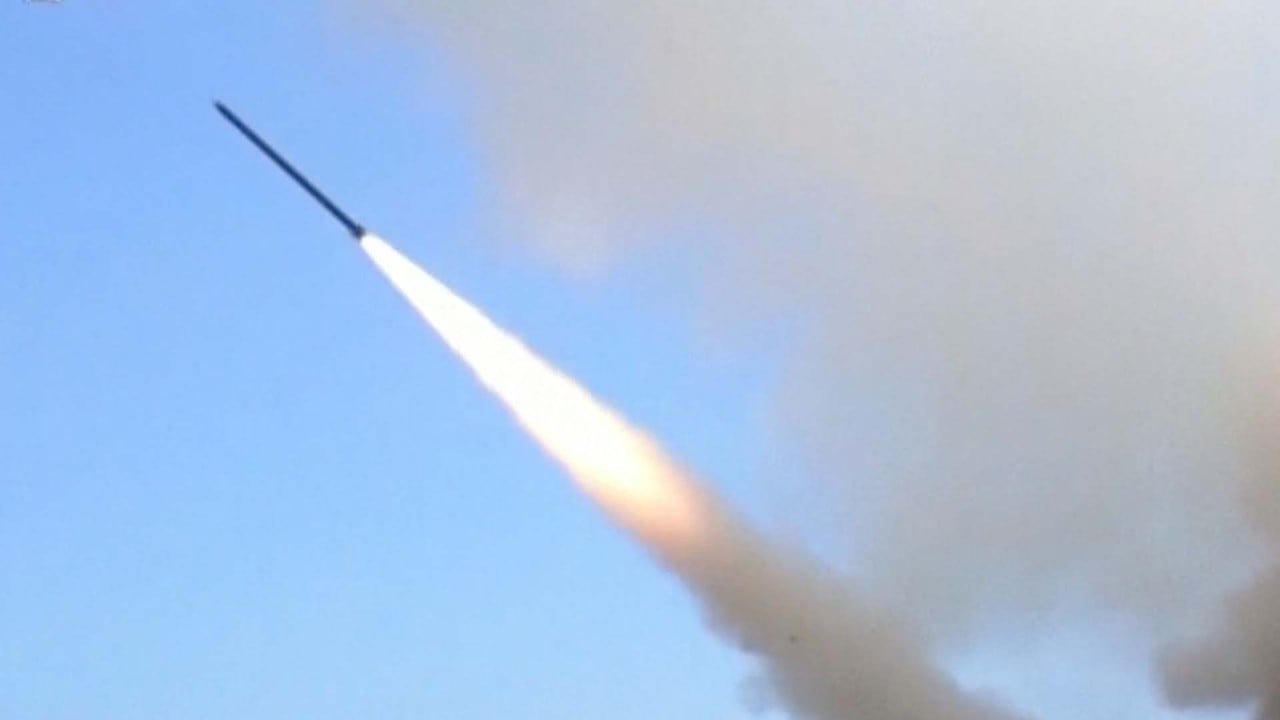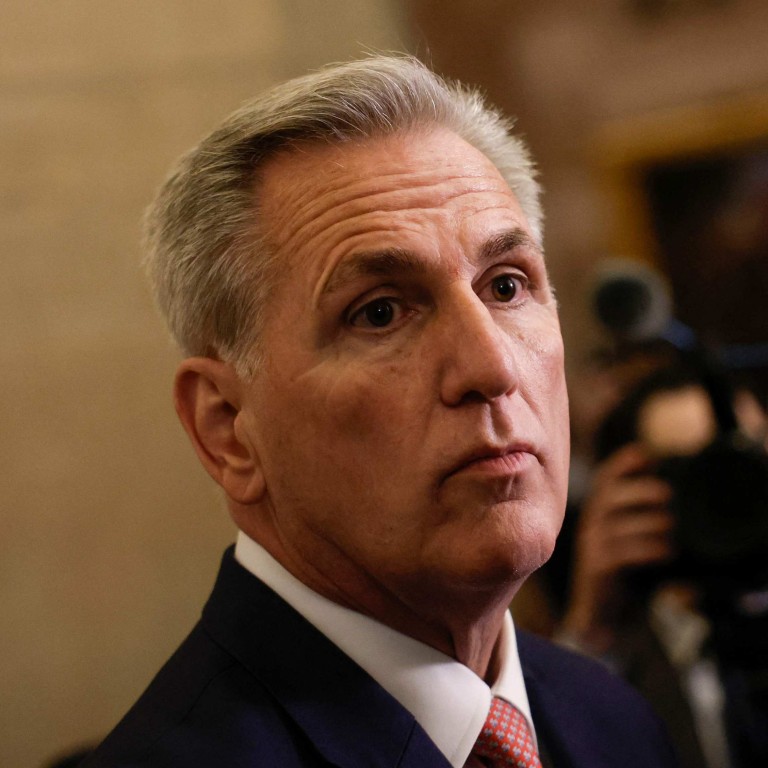
Exclusive | China unofficially suggests way to mitigate Taiwan trip by House speaker: US sources
- Kevin McCarthy may still meet with Taiwanese President Tsai Ing-wen, but to avoid a furious response, Beijing cites a 1997 diplomatic plan, analysts say
- The backchannel proposal, one says, is ‘actually a more constructive reaction than their reaction to Pelosi’
While the risk of an immediate crisis was reduced this week when US House Speaker Kevin McCarthy signalled near-term plans to meet Taiwanese President Tsai Ing-wen on US soil rather than in Taipei, the threat of an overwhelming response by the mainland Chinese military persists after he failed to rule out a future trip to the self-governing island.
But Beijing believes it may have a fix.
On Tuesday, McCarthy ended weeks of will-he-go speculation with word that both the Tsai sit-down and a subsequent trip to Taiwan remain in play.
McCarthy’s Taiwan moves are being closely scrutinised in Washington, Beijing and Taipei. After then-speaker Nancy Pelosi’s trip in August, the People’s Liberation Army launched dozens of military sorties and missiles, shut down shipping lanes, staged a mock seaborne embargo, cut diplomatic channels and restricted trade, causing global markets to swoon.
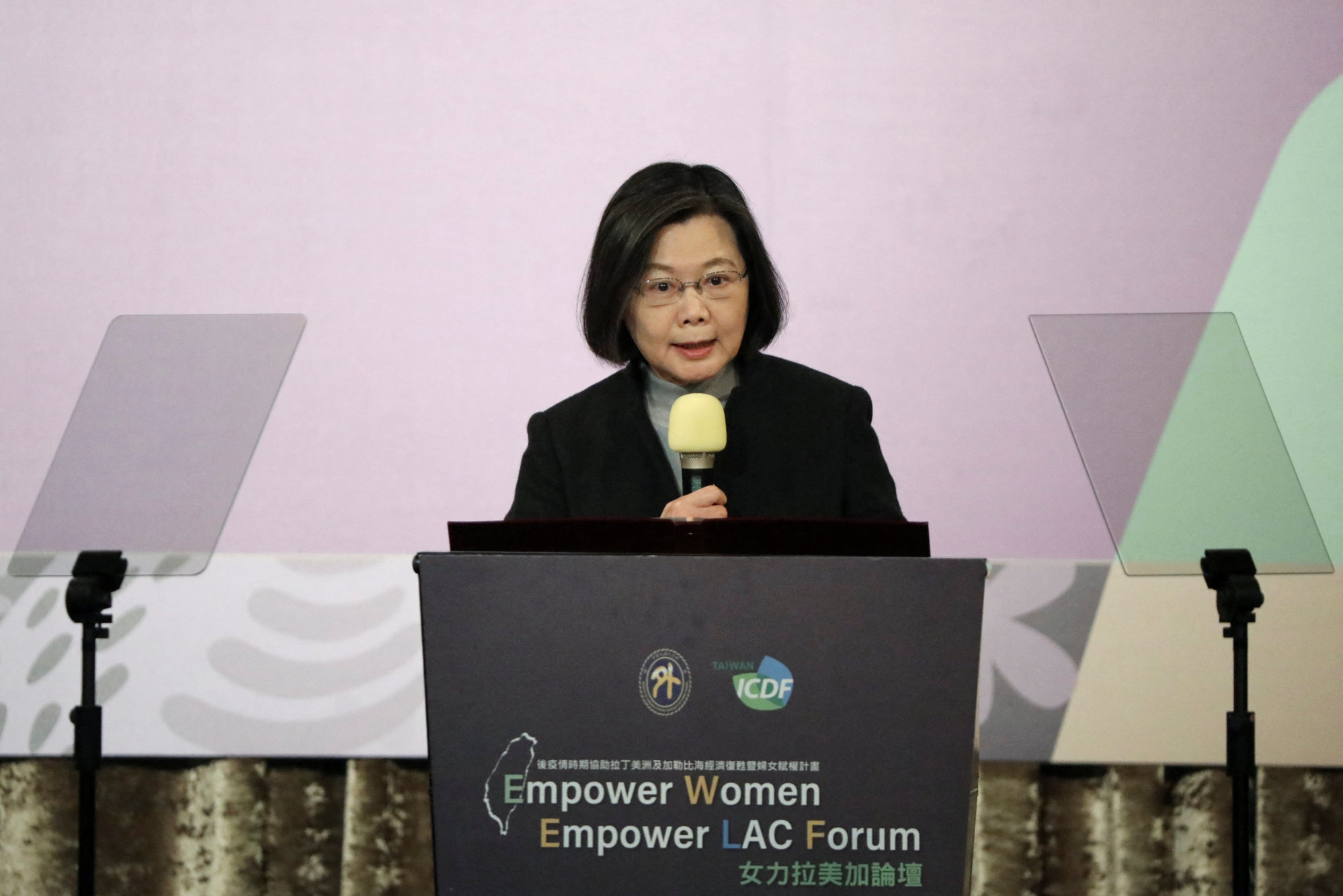
In an apparent bid to keep US-China relations from deteriorating further, however, China in recent months has shopped a possible workaround, according to several of those approached.
Using “track two” channels – ideas routed through analysts and former officials to preclude a domestic backlash or formal rejection – it dusted off a 26-year-old playbook employed when then-speaker Newt Gingrich visited Taiwan in 1997.
A quarter-century ago, then-US Vice-President Al Gore was dispatched to Beijing at roughly the same time Gingrich.
This allowed the hierarchy-conscious People’s Republic of China to save face, arguing to its hardliners that it received proper respect and a better visit. Beijing has recently suggested that a parallel trip by Vice-President Kamala Harris might be considered.
All eyes on Beijing as Taiwan’s Tsai tipped to see House speaker in US
“I have received the suggestion several times from our PRC friends that if McCarthy visits Taiwan, then the executive branch should send a parallel signal of reassurance about its commitment to the US-PRC relationship à la Gore-Gingrich,” said Ryan Hass, a senior fellow at the Brookings Institution and former director for China, Taiwan and Mongolia at the National Security Council.
She added that the idea reached Secretary of State Antony Blinken’s hands, without detailing when or who was involved.
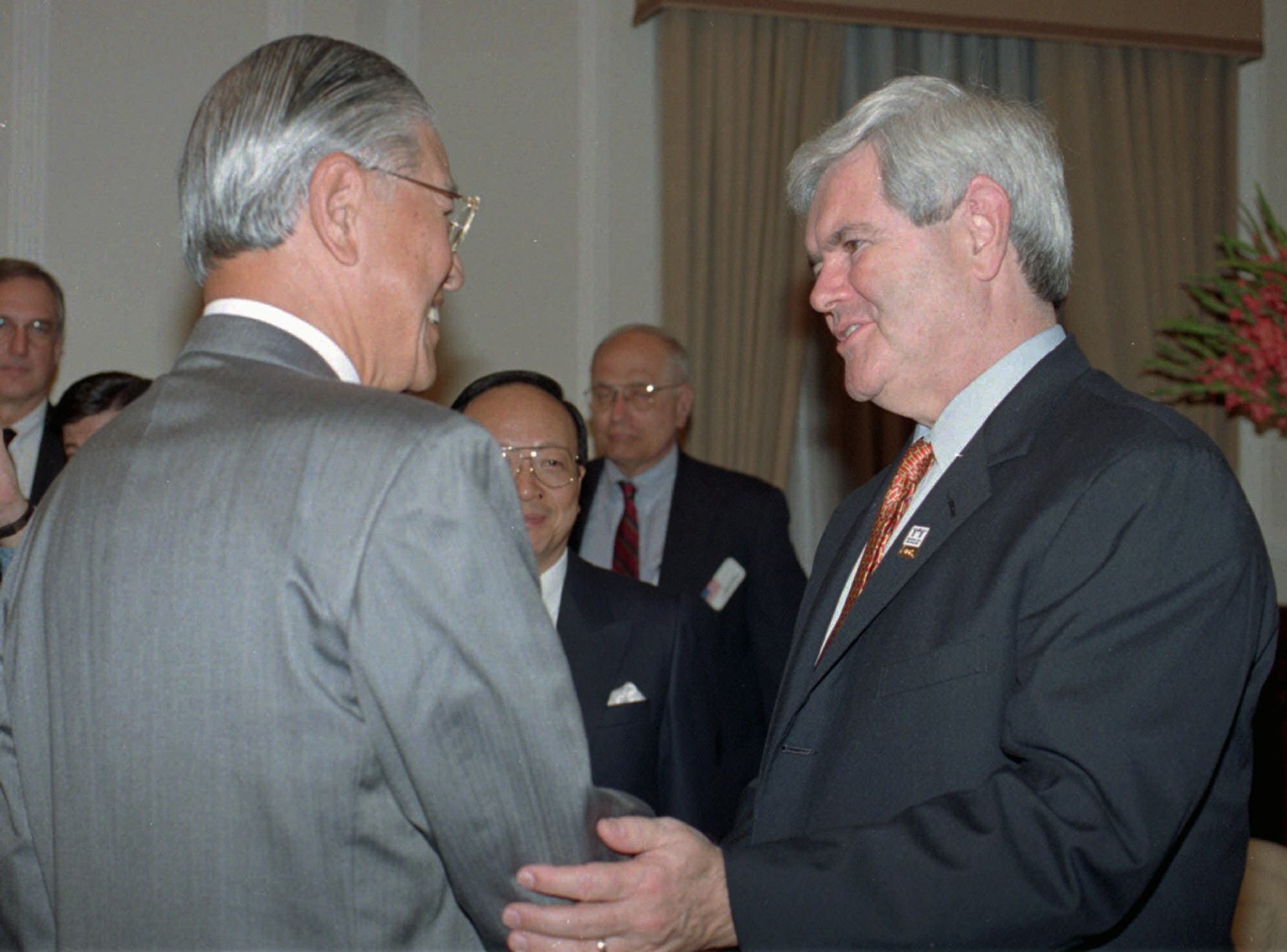
The Chinese embassy in Washington said the US should not meddle in its internal affairs but did not otherwise respond to questions about any track-two initiative. The US State Department and the vice- president’s office did not immediately respond.
The latest twist in the Tsai-McCarthy saga follows various threats, posturing and back-door initiatives since McCarthy signalled last summer his intent to visit Taiwan. House Foreign Affairs Committee chairman Michael McCaul followed that up last month, noting that the speaker planned to visit Taipei later this year or in 2024.
McCarthy told reporters Tuesday that a US meeting with Tsai and a subsequent trip to Taipei were not mutually exclusive. “That has nothing to do with my travel, if I would go to Taiwan,” he said. “China can’t tell me where and when I can go.”
China’s foreign minister demands US explain ‘destruction of Taiwan’ plans
The Financial Times, citing sources, reported a day earlier that McCarthy favoured a US meeting with Tsai.
McCarthy’s decision to push off any near-term visit was helped by Beijing’s nemesis, the government of Taiwan’s ruling Democratic Progressive Party, which signalled to McCarthy that it did not welcome his visit before the island’s January 2024 presidential election, according to one Washington analyst.
Any PLA show of force following the trip could help the opposition Kuomintang party, which has long argued that its less-fractious ties to Beijing reduce the risk of a deadly clash.
This was very coordinated messaging. It’s actually a more constructive reaction than their reaction to Pelosi
Beijing views Taiwan as a breakaway province to be eventually united with the mainland, by force if necessary. Although few countries recognise the island as an independent state, including the United States, Washington is bound by law to support Taipei’s military defence, something Beijing opposes.
“For China, this is sovereignty. For America, this is democracy,” said Jeffrey Moon, president of China Moon Strategies and formerly with the National Security Council.
But the very fact that China made the informal “observation” was encouraging, several added, evidence of a willingness to take a more active role in easing tensions – even as the backchannel idea suggested that Beijing may be out of touch with the US mood.
Expect Chinese retaliation if Kevin McCarthy visits Taipei, but less fury
“This was very coordinated messaging,” said Bonnie Glaser, Asia director with the German Marshall Fund of the United States. “It’s actually a more constructive reaction than their reaction to Pelosi, puts the ball a little more in their court.”
One problem is the political capital US President Joe Biden would have to expend on a vice-presidential trip. While Biden has an interest in better relations with China, he has a much bigger interest in getting re-elected, and sticking his neck out for Beijing is politically costly.
“Why would the Democrats want to send one of the two people likely to be on the 2024 presidential ticket to China when Beijing has recently rebuffed US concerns regarding the balloon and support for Russia, among other issues?” asked Zack Cooper, a senior fellow at the American Enterprise Institute.
“I can’t imagine that enough progress would be made to justify sending the US vice-president to China in the near future.”
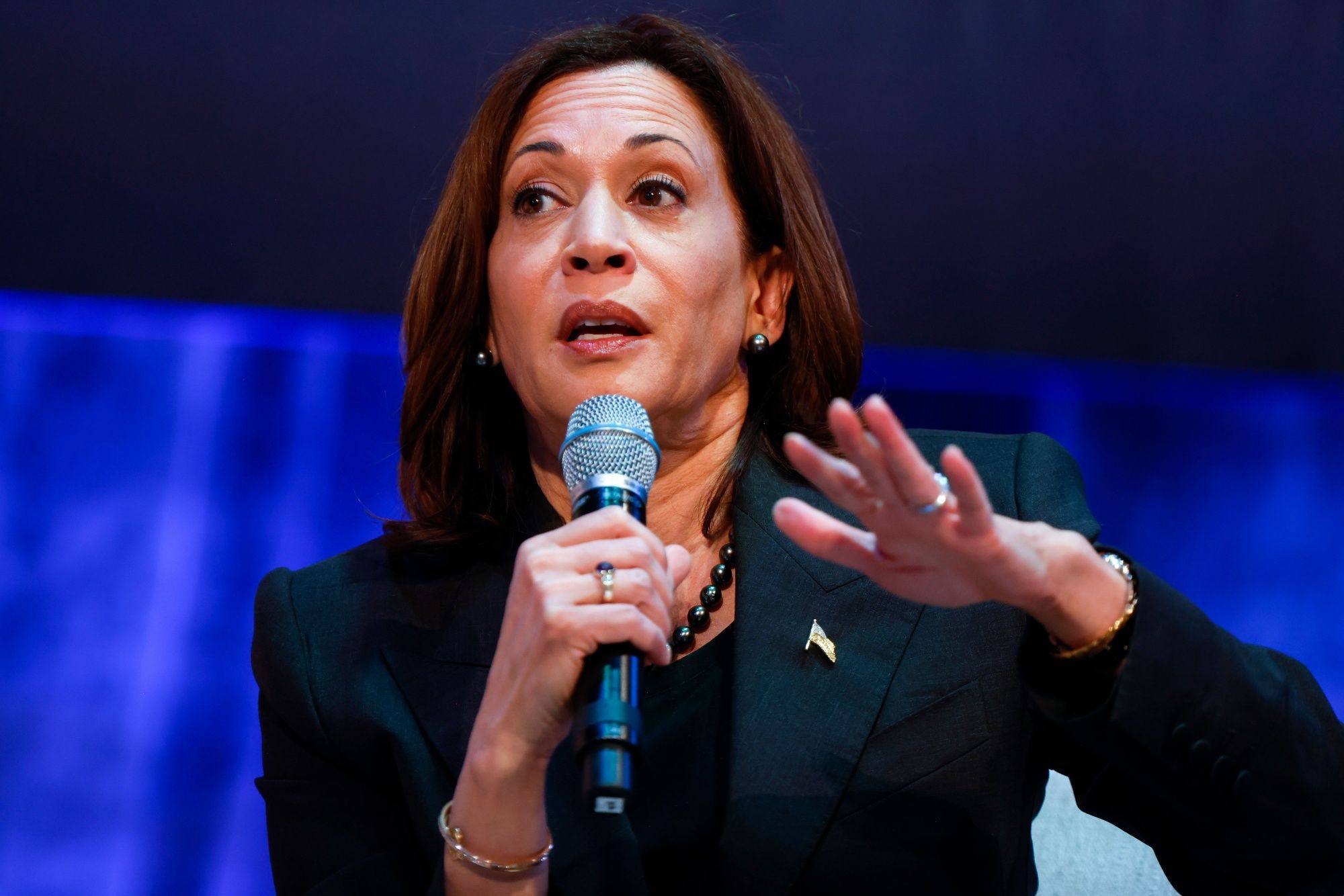
Even if Biden was tempted, getting Harris on board is another issue, analysts said. Although a trip to Beijing could bolster her foreign policy credentials in any future presidential run, it would saddle her with another unpopular assignment.
As vice-president, Harris has already been asked to tackle thorny immigration and voting rights issues, even as many give her underwhelming marks on her performance.
And if she did agree, she might use the platform to criticise China on its home turf, hardly the visit Beijing welcomes.
“I doubt Harris would have any interest in serving as the foil to McCarthy, who would bask in accolades while Harris would invite barbs for cozying up to the Chinese,” a former State Department official said.
EU tells Taiwan to forget about a bilateral investment pact
Fears remain that if McCarthy does travel to Taiwan during Congress’ August recess or after the Taiwan election, China could stage an even greater show of force than followed Pelosi’s visit to avoid appearing weak. It could also react strongly if Tsai gives a US speech seen as inflammatory.
In a mirror image of US distrust, Beijing has felt increasingly encircled and isolated as it watches Washington strengthen military links with Tokyo, London and Canberra; bolster diplomatic alliances, funnel more weapons to Taiwan and organise a unified front against Russia, China’s “no limits” partner, after its Ukraine invasion.
At the extreme, a PLA military reaction could involve temporarily occupying Kinmen or another small Taiwanese island.
Less drastic would be a version of its August playbook with more missiles, more jet fighters probing further into Taiwan airspace with more live-fire exercises shutting down Taiwan’s ports longer.
“I think China’s response will be more escalatory but less risky,” Cooper said. “It will be Pelosi-plus, but a small plus.”
McCarthy’s itinerary could shape the response. If the speaker went relatively quietly, Beijing could be fairly restrained. If he brought a large delegation, made a high-profile speech and directly challenged China’s authority, the risks increase.
McCarthy’s tenuous grip on his very raucous Republican caucus could also play to Beijing’s favour – he might lose the speakership before a meeting with Tsai in Taiwan even happens.
“Another possibility is that his schedule gets too busy,” Moon noted. “You can’t leave the roost unattended very long because the chickens will get out of control.”
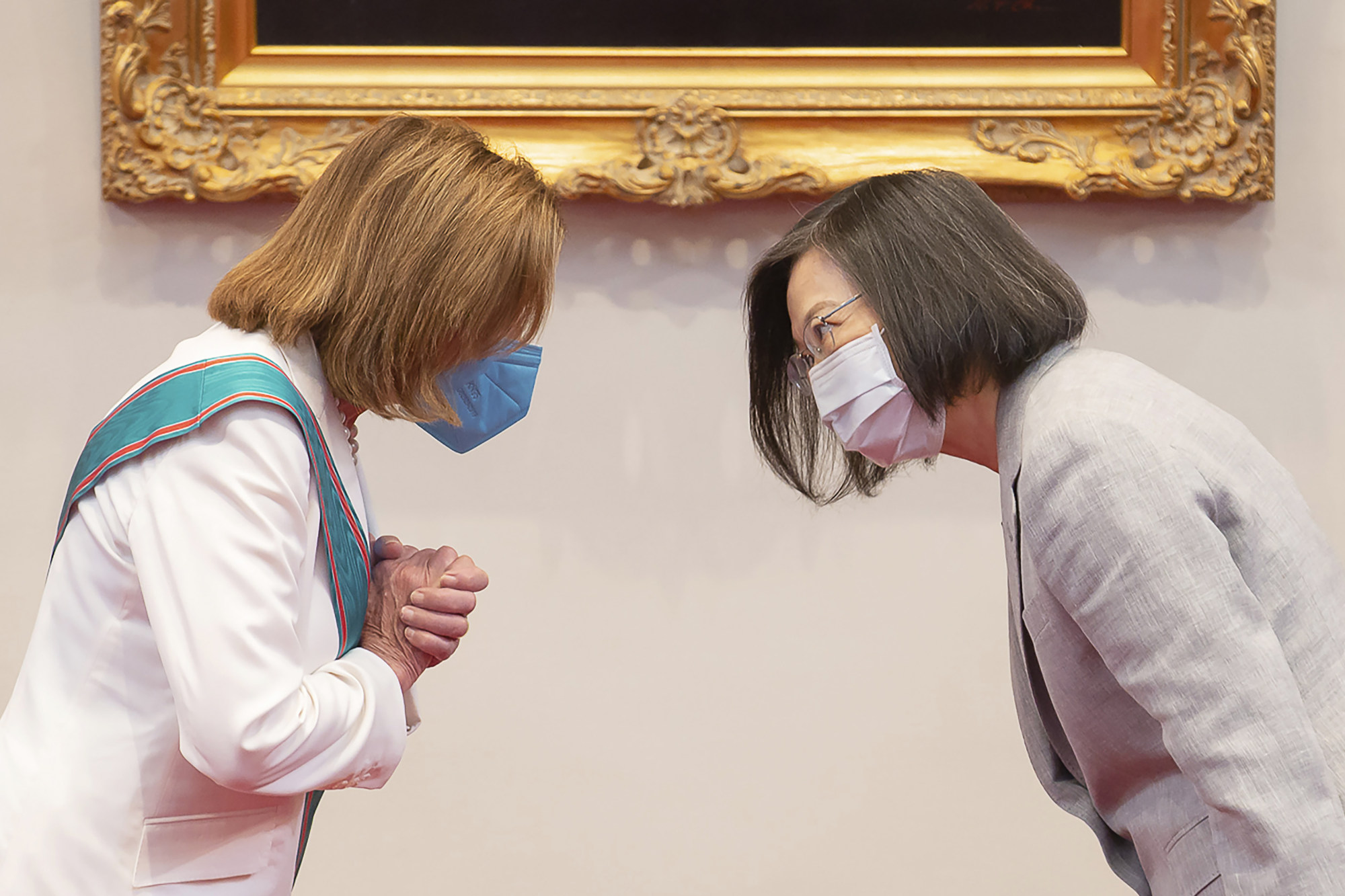
Pelosi was also a senior member of the ruling Democratic Party – Gingrich and McCarthy are both in the opposition – and was disliked, given her outspoken criticism over Tibet, Xinjiang and the 1989 Tiananmen crackdown.
“This year … the mental groundwork is laid,” said Sun.
While Beijing may have misread the room, Sun added, it saw a narrow window to stabilise relations between Biden’s meeting with Chinese President Xi Jinping in Indonesia in November and the 2024 US presidential election.
Taiwan certainly appreciates all the US attention, but is wary of being a ping pong ball
The White House is expected to remain largely on the sidelines regarding any Tsai-McCarthy meeting or the growing number of Congressional delegations travelling to Taipei. After failing to deter Pelosi, it can hardly ask opposition leaders to stand down.
A further contrast with 1997 is that China is now a lot more powerful and Gingrich was willing to cooperate then, visiting China as well as Taiwan and acceding to Beijing’s request that he not fly directly between the two.
In the current political climate any Beijing stop by McCarthy would be roundly condemned at home as kowtowing to the Chinese Communist Party. And any Beijing attempt to discourage him following its mild late-January warning could well backfire.
“The worst thing the Chinese could do is tell McCarthy he can’t go. They’ve basically already done that,” said Cooper. “That boxes McCarthy in because he can’t look like he’s listening to Beijing.”
Taiwan confirms Tsai Ing-wen to make US stopover, hits back at Beijing
Taiwan, for its part, welcomes the growing US support, even as some fear collateral damage. “Can you love us too much is the question,” said Michael Fonte, the Washington director of the ruling Taiwan Democratic Progressive Party Mission in the US.
“Taiwan certainly appreciates all the US attention, but is wary of being a ping pong ball that gets bounced back and forth.”
One former US State Department official noted that, while Beijing saw the Gore trip in 1997 as a successful counterweight to Gingrich’s, the two were planned separately and Gore was not particularly happy with his role.
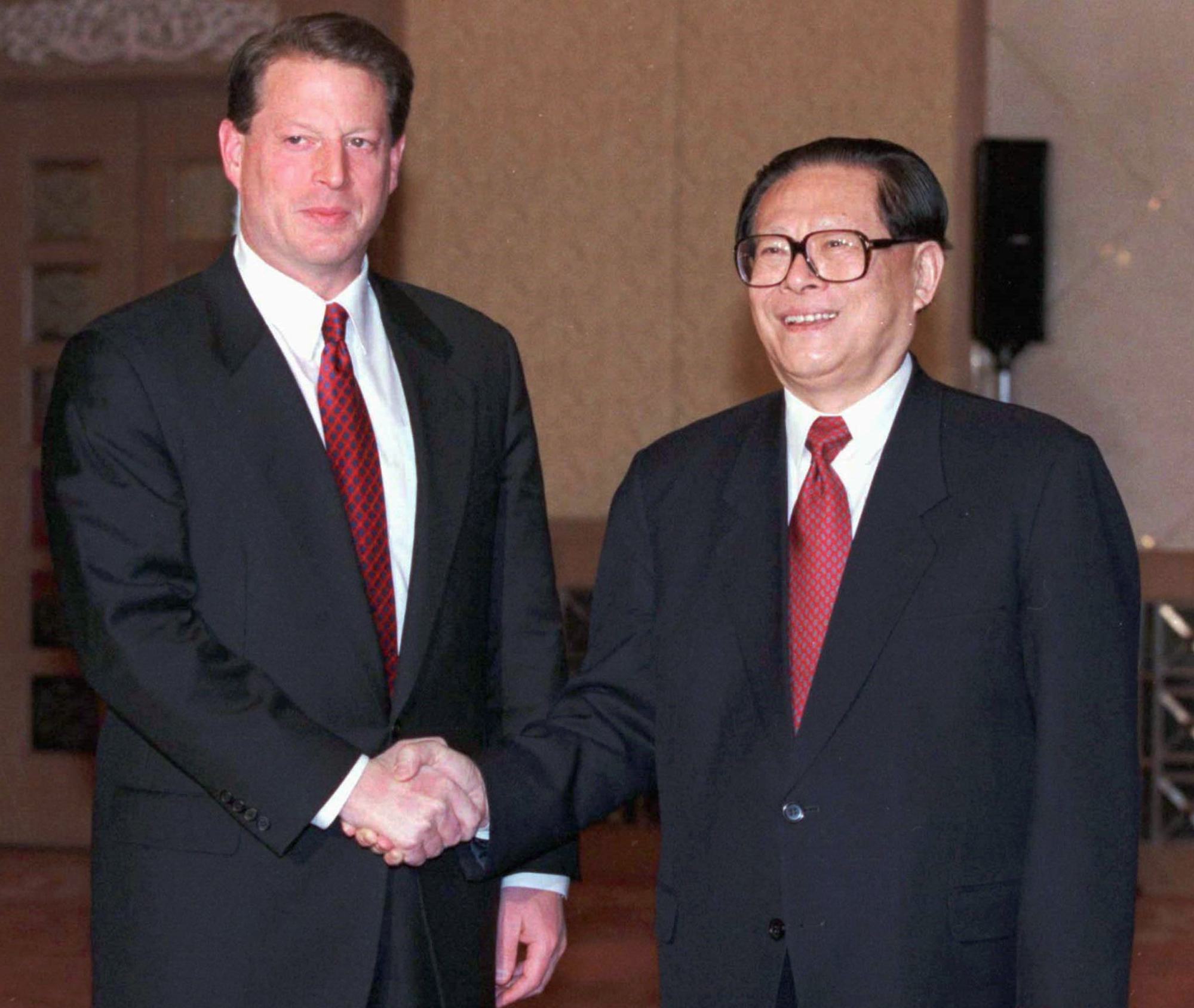
During his Beijing stop, then-Chinese Premier Li Peng surprised him with a champagne toast: footage shows a clearly uncomfortable Gore spilling his drink, trying to avoid having the moment recorded.
But Beijing – and many analysts – credited the Gore-Gingrich pairing as a key to stabilising relations and ending China’s diplomatic isolation after the 1989 Tiananmen crackdown.
“It is sunshine after the rain,” then-president Jiang Zemin gushed following the two 1997 trips.


